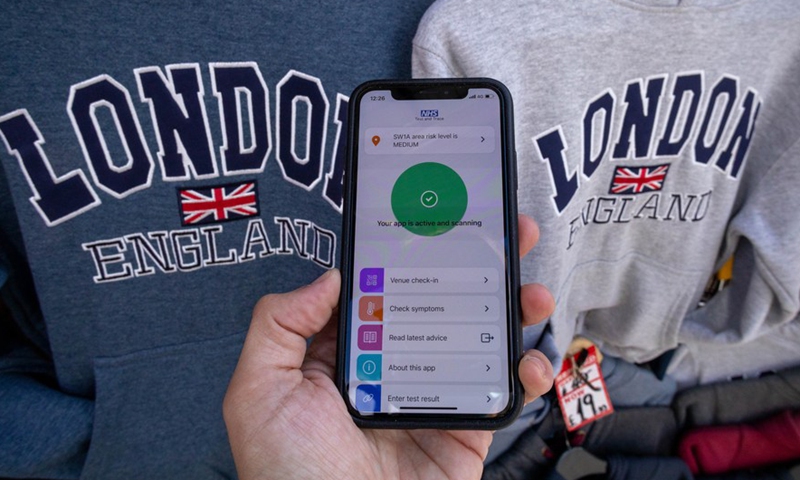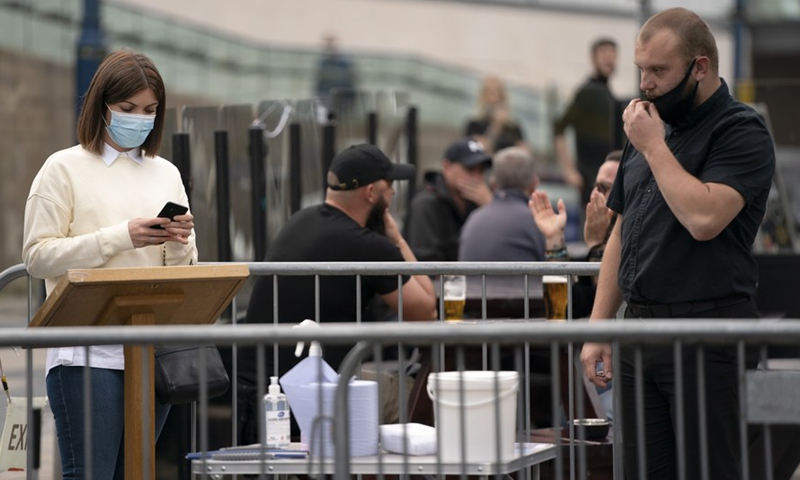Over 30 UK universities report COVID-19 cases
Source: Xinhua Published: 2020/9/29 11:32:14

Photo taken on Sept. 24, 2020 shows the NHS COVID-19 app displayed on a phone in front of a tourism merchandise store on Westminster Bridge in London, Britain.Photo:Xinhua
More than 30 universities in Britain have reported coronavirus cases since the new school term started earlier this month, with thousands of students in self-isolation, local media reported on Monday.
There are no official figures from the British government or regulator, but a tracking of local reports suggested that about 40 out of 130 universities in Britain have had COVID-19 cases so far, said the BBC.
At least 33 universities in Britain now have confirmed cases of COVID-19, with another two having suspected cases, the Sky News reported on Monday.
More than 717 cases have been identified among students and staff since universities reopened, it said.
Manchester Metropolitan University has asked around 1,700 students to self-isolate after 127 cases were confirmed. The University of Glasgow has 172 confirmed cases, with 600 students self-isolating, said the Sky News.
Many universities had promised students a mix of in-person and online teaching, raising questions about whether they should get a refund if teaching is only online or if they should be paying for university accommodation if all their lessons are delivered remotely.
The Labour shadow education secretary, Kate Green, told the BBC that the option of student fee rebates should be kept "absolutely on the table."

A woman uses the track and trace app at a pub in Manchester, Britain, on Sept. 24, 2020.Photo:Xinhua
The University of Glasgow has agreed to refund students one month of rent and provide a 50-pound (about 63.8-U.S.-dollar) payment for food.
Local media reported Monday that just under a quarter of people in Britain now are living under different lockdown restrictions, as cases continue to rise across the country.
This finding came as countries, such as Britain, China, Russia and the United States, are racing against time to develop coronavirus vaccines.
The British government's Chief Scientific Adviser Patrick Vallance said earlier that it is possible that some vaccine could be available in small amounts later this year, but it is more likely that a vaccine will be available early next year, although that is not guaranteed.
Posted in: EUROPE,WORLD FOCUS